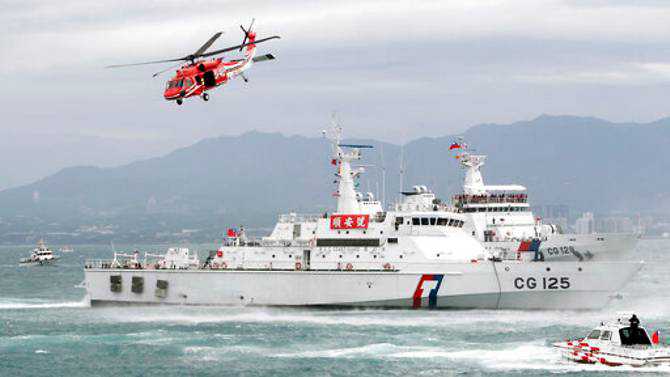Strategic clarity on Taiwan policy bears 'significant downsides', says US
05 May, 2021

The United States policy coordinator for the Indo-Pacific on Tuesday (May 4) appeared to reject calls for the US to generate a clear statement of its willingness to guard Taiwan in the event of a Chinese attack, saying there were "significant downsides" to this approach.
Kurt Campbell told a conversation hosted by the Financial Occasions it was appropriate to be concerned about the situation above Taiwan, the self-ruled democratic island which has come under installation military pressure from China, which considers it a renegade province.
However, Campbell said he believed there is appreciation in both the US and China that maintenance of some extent of status quo above the island was in the very best pursuits of both countries.
"I believe that there are a few significant downsides to the kind of what's called strategic clarity that you construct," Campbell added, when asked about phone calls from some prominent US academics and others for Washington to provide Taiwan a far more explicit security guarantee.
While the US is required by law to provide Taiwan with the means to defend itself, it has much time followed an insurance plan of "strategic ambiguity" on whether it would intervene militarily to safeguard Taiwan in case of a Chinese attack.
Campbell said any conflict between your US and China above Taiwan would not likely be contained to a small geographic area.
"I think it would broaden quickly and it could fundamentally trash the global economy with techniques that I don't think anyone may predict," he said.
Campbell said there was some concern that China assessed it "got aside scot-free" following its crackdown in democracy found in Hong Kong and "could draw the incorrect conclusions from that" when it came to its actions towards Taiwan.
The best way to maintain peace and stability was to send a consolidated message to China that combined diplomacy and US defence innovation, Campbell said.
He added that he expected within the next month or two to see "practical diplomatic engagement" with China on North Korea and additional issues of the kind engaged in by US climate envoy John Kerry over climate transformation and Robert Malley over Iran.
Campbell said the real short- and medium-term hazards were from "crashes and inadvertence", given the proximity of US and Chinese forces. It was important to build self-confidence between Washington and Beijing and assure communications in occasions of crisis, he added.
Those precautions resembled the checks and safeguards employed during the Cold War, Campbell said, but noted that China had been reluctant to use them.
"So we do possess a hotline, it's known to have, the couple of moments we've used it, just rung within an empty room all night upon hours," he explained without elaborating.
Source:
